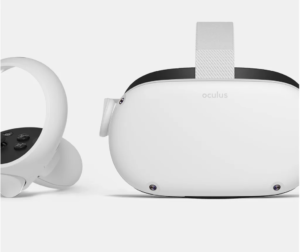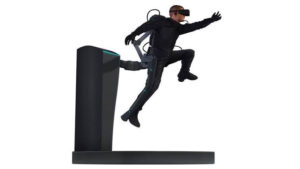Facebook have just released the pre-orders for the Oculus Quest 2, possibly one of the most affordable serious VR headsets to hit the market. With the technology improving and the prices reducing we might just see a new surge in popularity for VR technology.

It seems like every major game publisher and internet company has their fingers in the pie of VR, just recently Ubisoft announced two new VR games set in their tentpole franchises of Assassin’s Creed and Splinter Cell. If a company like Ubisoft who, let’s be honest, just makes the same three games every year can branch out into the VR space, it looks like we are about to see some major movement in the VR sector.
Besides the Oculus Quest 2, Facebook has announced a new “smart glass” set to release in 2021. This is in partnership with the luxury eyewear brand Ray-Ban. There are no details yet about the tech built into the glasses, but it is clear to see that Facebook is betting big on VR & AR.
Let’s talk about esports. Bookmakers everywhere will be happy to know that there is a burgeoning esports market in the VR space. Initially, it was just a small, grassroots scene for the few hobbyist’s who could dedicate their time to the sport, but ESL, a major player in esports tournaments, are now entering their third year running a VR league. Players compete in games like VR Dawn’s Echo Arena and the military shooter Onward. In fact, just last month the VR Master League held their second Echo Arena tournament completely online.
It’s not just VR games that helps the esports community, Oculus, and many other VR companies have their own TV or streaming applications. Oculus TV often hosts streams of major esports tournaments, the experience of watching esports in VR is equivalent to watching them on a 180-inch monitor in real life. If the pre-orders of the Quest 2 are any indication, we could see a major spike in viewership from VR users looking to experience everything their headset has to offer.

Even different types of online betting sites are getting in on the action. Virtual horse racing is one of the most popular virtual sports for bookmakers, but when they started the graphics were basic at best. Now, companies like Catalyst VR and others can place you right in the middle of the action with features like “Jockey Cam” that gives VR users a first-person view of a virtual horse race from the rider’s perspective. After the quarantine hit, major races like the Grand National went virtual and drew in more viewers of virtual horse racing.
Even further in the future, we can look forward to full-body haptic feedback suits for use in VR, commercial use of AR & VR headsets, VR health and therapy devices and, if patents are to be believed, even Apple will dip their toe in the industry.
Right now, the future of VR is looking bright, we can expect to see more and more investment in the industry and as the user base grows so will the number of companies and developers looking to improve it.







